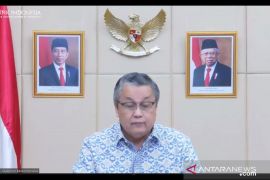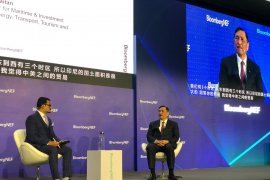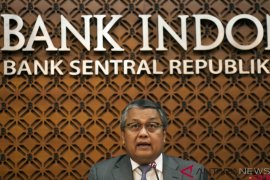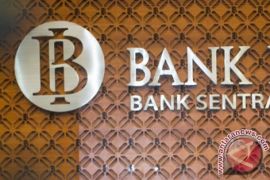Deputy Governor of BI Perry Warjiyo said the surplus of US$130 million in the country trade balance in August contributed to narrowing the current account deficit.Jakarta (ANTARA News) - Bank Indonesia (BI) estimated that the country`s current account deficit would narrow to 3.4 percent in the third quarter of this year from 4.4 percent of the country`s gross domestic product in the previous quarter.
Deputy Governor of BI Perry Warjiyo said the surplus of US$130 million in the country trade balance in August contributed to narrowing the current account deficit.
A surplus of US$1.03 billion was recorded in trade of commodities other than oil and gas in August while deficit in oil and gas trade narrowed to US$0.90 billion .
Perry said a decline in current account deficit constituted a cycle with deficit tending to narrow in the third quarter.
"The current account is seasonally low in the first quarter and would peak in second quarter and decline in the third quarter before rising slightly in the last quarter.
"But it is almost certain the current account deficit in the third and fourth quarter would be less than 4 percent of the GDP," he said.
He said the global economic condition is expected to improve in the second half of the year contributing to narrowing the current account deficit.
The prospects of economic recovery would be followed with the rise in the prices of commodities in the second half of this year, and the increase in the commodity prices is expected to contribute to shoring up the country`s sagging exports, he said.
Meanwhile economic slowdown and rupiah weakening would result in falling imports, he added.
In addition, imports of oil are expected to decline on an increase in the prices of oil fuels in June 2013 and the slowdown in domestic economy, he said.
"Altogether all those factors would contribute to narrowing the current account deficit," he concluded.
He said he hoped the prospects of narrowing current account deficit would sustain external balance as deficit in current account could be sufficiently offset by inflowing foreign capital both in direct investment (FDI) and portfolio investment.(*)
Editor: Heru Purwanto
Copyright © ANTARA 2013











